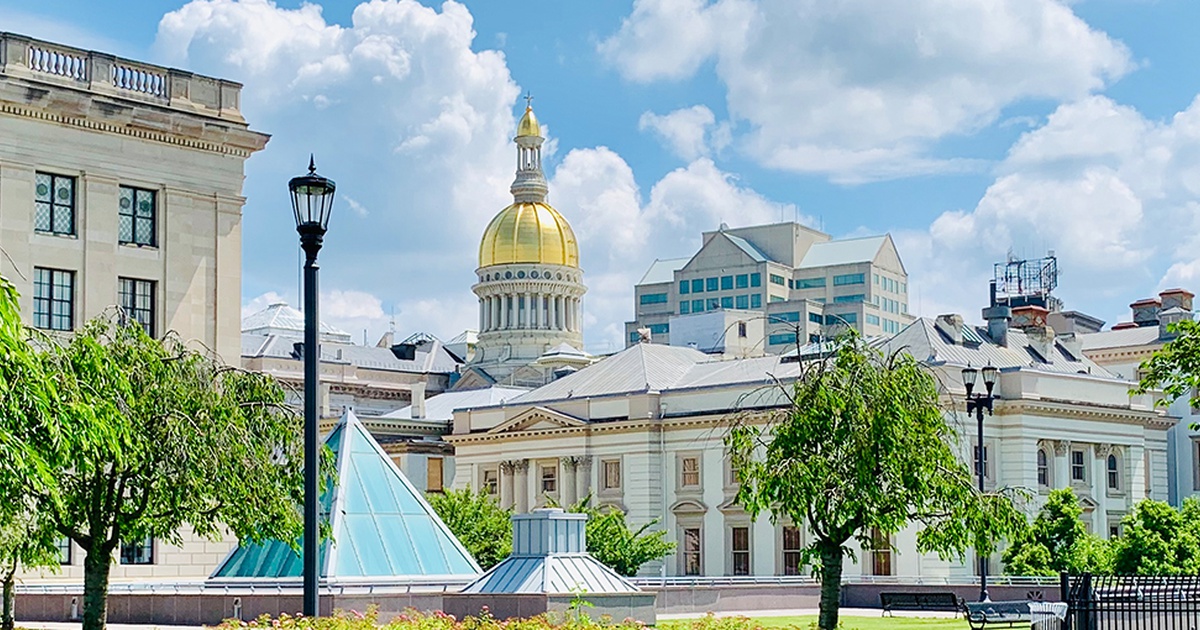This Week in History: How Trenton Became the Capital City

As the Capital City of the Garden State, Trenton holds a proud position in our state’s and nation’s history. But how did this city earn this special distinction? When a city is chosen to be a state’s Capital, it comes with several privileges and responsibilities, distinguishing itself from other municipalities throughout the state. Today, let’s explore how capital cities are chosen and what made Trenton stand out as New Jersey’s representative city.
As a state’s Capital, the chosen city is the site of a state’s physical government, typically including its legislature and governor’s office. Capitals are also typically home to courthouses and other important state and local government offices. As many of these cities hold a rich historical significance, tourism also plays a major role in their local economies. Due to its status as a state capital, these cities represent a concentration of governmental and economic power. No doubt a gift and a great responsibility, serving as a Capital City is a powerful way to get your community’s name out there and make your mark as a compelling destination.
Determining which city receives this honor comes from several factors, including location, resources, and political compromise. Historically, capitals are typically chosen by a state’s legislature, although on occasion, they have been selected either by the state’s governor or through a popular vote election. When New Jersey tried to decide on its state capital, it had several factors to consider. Some strong contenders include Newark, for its size and proximity to New York, and Jersey City, which boasts many of the same perks. However, only Trenton checked the boxes for our state’s official Capital.
When Trenton was officially chosen as NJ’s state capital, the priorities for its location were many of the same factors we would consider today. One of the biggest reasons why Trenton was selected was due to its equal proximity to New York City and Philadelphia, two major hubs of transport and business. Trenton is also located near the Delaware River, making it ideal for trade, manufacturing, and more. As Trenton even served as the nation’s Capital for a brief time, there is no wonder why the state’s founders chose to take advantage of this strategic location. Beyond its unparalleled proximity and incredible resources, the City of Trenton was also honored as our state’s Capital due to its integral role in securing our nation’s freedom.
Riding high off a victory in the Revolutionary War, our founders can’t forget Trenton’s incredible role in officially emerging victorious from the war for our country’s freedom. During the American Revolution, the Battle of Trenton was widely considered the war’s turning point, providing Washington and his troops with enough momentum to forge ahead and officially bring home the win for the newly-formed United States of America. Between its ideal location, its historical significance, and its seemingly endless abundance of resources, picking Trenton was the obvious choice.
Still standing proudly as our state’s Capital today, Trenton is the site of impactful legislative decisions, business innovation, and world-changing endeavors that continue to put our community on the map. There’s always a reason to be proud to call this place your home, and as it turns out, the State of New Jersey feels the same!

SOURCES:
- https://www.tandfonline.com/doi/full/10.1080/2325548X.2014.954199#:~:text=Most%20state%20capitals%20were%20chosen,choice%20of%20the%20state%20capital.
- https://www.sporcle.com/blog/2019/02/why-is-trenton-the-capital-of-new-jersey/
- https://www.britannica.com/story/how-do-countries-choose-their-capital-cities
The post This Week in History: How Trenton Became the Capital City first appeared on TrentonDaily.
Powered by WPeMatico
